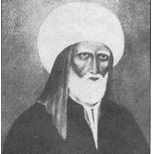
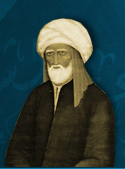
الشيخ أحمد بن زين الدين الإحسائي

Shaykh Aḥmad ibn Zayn al-Dīn al-Aḥsā’ī
(d. 1241/1826)
Stephen Lambden UC Merced
IN PROGRESS AND UNDER REVISION - Last updated 02-08-2025.
![]()
- Materials for the Study of Shaykhism I - Arabic, Persian + Sources.
- Materials for the Study of Shaykhism II - Western Language Sources.
- Hyperlinks to Shaykhi Websites and related studies.
![]()
- A brief biography of Shaykh Aḥmad ibn Zayn al-Dīn al-Aḥsā’ī
- Select Ijāzas ("Religious Authorizations") written for Shaykh Aḥmad ibn Zayn al-Dīn al-Aḥsā’ī.
- Biographical Notes and Sources for the life of Shaykh Aḥmad ibn Zayn al-Dīn al-Aḥsā’ī (d.1241/1826) I.
- Biographical Notes and Sources for the life of Shaykh Aḥmad ibn Zayn al-Dīn al-Aḥsā’ī (d.1241/1826) II Select Western Sources.
- Shaykh Ahmad al-Ahsa'i : An Annotated, Alphabetical, Bibliographical Survey of the Writings of Shaykh Aḥmad al-Aḥsā’ī including select mss., printed texts, Urls and PDf downloads.
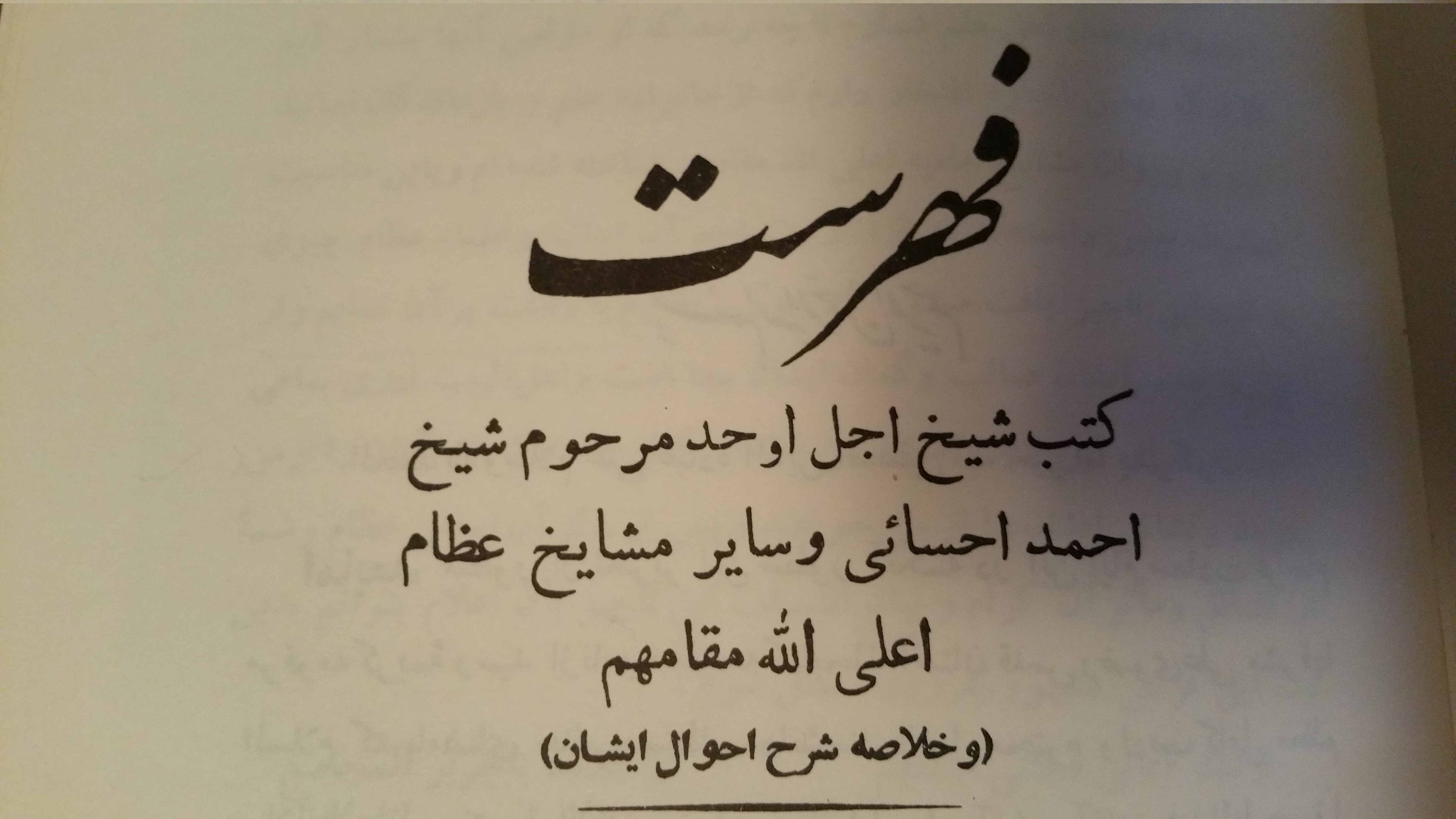
Fihrist-i kutub-i shaykh-i ajall-i awhad-i marḥūm Shaykh Aḥmad Aḥsāʼī va sāyir mashāyikh-i iẓām va khulāsah-i sharḥ-i aḥvāl-i īshān. Āqā Ḥajjī `Abu'l-Qāsim Khān al-Ibrahīmī (d. 1389/1969), Fihrist -A . Shaykh Aḥmad ibn Zayn al-Dīn al-Aḥsā’ī (d.1241/1826).
- Moojan Momen, BSBM1 - uncorrected 1st ed. Newcastle upon Tyne, 1991.
 BSBM1-C.pdf
BSBM1-C.pdf - BSBM1 2nd expanded Web edition (ed. S. Lambden) UC Merced, 2015.
![]()
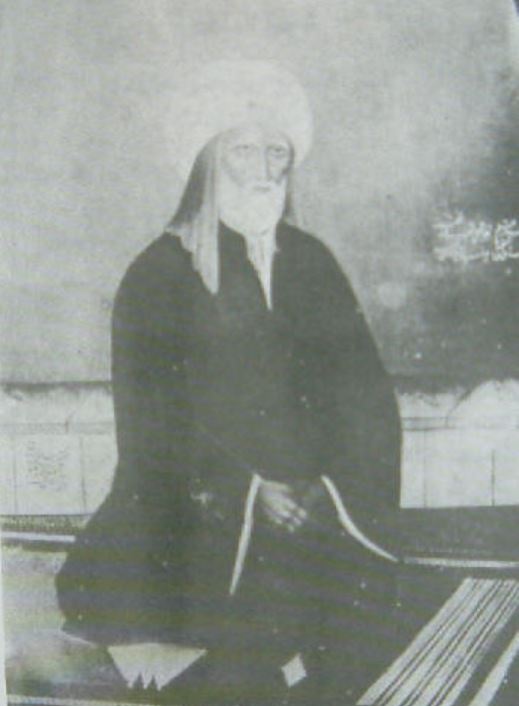
Towards a reprint of the Jawāmi` al-kalim ("The Comprehensive Discourse") a 19th century compilation of the writings of Shaykh Aḥmad b. Zayn al-Dīn al-Aḥsā'ī (d. 1241/1826). Extracts from the lithograph printing ...
SELECT TRANSLATIONS FROM WRITINGS OF SHAYKH AHMAD
- The text of the al-Ziyāra al-jāmi`a al-kabīra of the 10th Imam `Ali al-Hadi (d. 254/868).
 PDf. Ziyara jk.pdf
PDf. Ziyara jk.pdf - A translation of al-Ziyāra al-jāmi`a al-kabīra of the 10th Imam `Ali al-Hadi (d. 254/868).
- Some Notes on select twelver Shi`i commentaries on the Ziyarat al-Jami`a al-kabira.
- Introduction to and extracts in translation from the Sharh al-Ziyāra al-jāmi`a al-kabīra of Shaykh Ahmad al-Ahsa'i (d.1241/1826).
- The Tafsir Surat al-Tawhid (Commentary on the Surah of the Divine Unity [= Q. 114) of of Shaykh Aḥmad al-Aḥsā’ī.
 PDf. The Arabic text : T-Tawhid.
PDf. The Arabic text : T-Tawhid.- A Risala of Shaykh Aḥmad al-Aḥsā’ī in Reply to some brethren of Isfahan.
- A Risala of Shaykh Ahmad in responce to questions of Mullā Muhammad Ḥusayn al-Anārī.
 PDf. The Arabic text :
PDf. The Arabic text : - Shaykh Aḥmad al-Aḥsā’ī on an Islamicate Delphic Maxim - Introduction
- Shaykh Aḥmad al-Aḥsā’ī on an Islamicate Delphic Maxim - Translation.
 PDf. The Arabic text : al-Ahsa'i-man arafa.pdf
PDf. The Arabic text : al-Ahsa'i-man arafa.pdf - Select texts of Shaykh Aḥmad al-Aḥsā’ī on the Isra'-Mi`raj of the Prophet Muhammad.
- Uncorrected Stephen Lambden Powerpoint Presentation on Shaykh Aḥmad al-Aḥsā’ī = PP_-_Twin Shining Lights 1-Shaykh_Ahmad.pdf
![]()
SAYYID KAZIM RASHTI

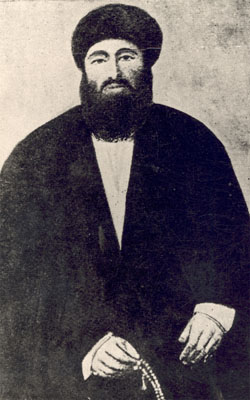
السيد كاظم بن السيد قاسم الحسيني الرشتي
Sayyid Kāẓim ibn Sayyid Qāsim al-Ḥusaynī al-Rashtī
(d.1259/1843)
- A Brief Biography of Sayyid Kāẓim al-Husayni al-Rashtī.
- Sayyid Kāzim al-Rashtī : An Annotated, Alphabetical, Bibliographical Survey of the Writings of Sayyid Kazim Rashtī including select mss. materials, printed texts and Urls.
- Sayyid Kāẓim al-Rashtī : Bibliography A - Arabic, Persian, etc.
- Sayyid Kāẓim al-Rashtī : Bibliography B - Western Languages.
- Āqā Ḥajjī `Abu'l-Qāsim Khān al-Ibrahīmī (d. 1389/1969), Fihrist –B Sayyid Kāẓim ibn Sayyid Qāsim al-Ḥusaynī al-Rashtī (d.1259/1843). Stephen Lambden, BSBM 2. Fihrist –B Sayyid Kāẓim al-Rashtī.
- Uncorrected Stephen Lambden Powerpoint Presentation on Sayyid Kāzim Rashtī = PP Twin Shining Lights 2-Sayyid Kazim Rashti.pdf
![]()
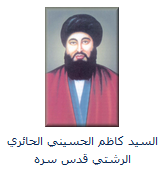
SELECT TEXTS AND TRANSLATIONS FROM THE WRITINGS OF SAYYID KAZIM
- Some extracts from the Tafsīr āyat al-kursī (Commentary upon the verse of the Throne [= Q. 2:255]) of Sayyid Kāẓim Rashtī .
- Some extracts from the Sharh al-Qasida al-Lamiyya (The Ode Rhyming in the Letter "L") of Sayyid Kāẓim Rashtī.
- The Risālah fī sharḥ wa tafsīr ism al-a`ẓam: The Treatise in Commentary upon the [graphical form of] the Mightiest Name of God. Introduction and Annotated Translation.
 PDf. SOAS ms. : Rashti-Sharh al-ism al-a`zam.pdf
PDf. SOAS ms. : Rashti-Sharh al-ism al-a`zam.pdf - `The treatise of Sayyid Kāzim Rashtī on the Shī`ī graphical form of the Mightiest Name of God (al-ism al-a'zam)'. Paper and abstract.
 PDf-2004 Abstract = SKR-ism.pdf
PDf-2004 Abstract = SKR-ism.pdf - The Commentary of Sayyid Kāẓim al-Ḥusaynī al-Rashtī (d.1259/1843) on the دعاء السمات Du`a al-Simat (The Prayer of the Signs).
 PDf. Lambden 2007 Trans. Du`a al-Simat : Du`a al-simat-trans. Lambden.pdf
PDf. Lambden 2007 Trans. Du`a al-Simat : Du`a al-simat-trans. Lambden.pdf- Lambden Trans. of the Sharh Du`a al-simat ("Prayer of the Signs") of Sayyid Kazim Rashti.
- Some Early Shaykhi Interpretations of the Basmala, Shaykh Ahmad ibn Zayn al-Din al-Ahsa'i (d.1241/1826) and Sayyid Kazim al-Husayni al-Rashti (d. 1259/1843). 2023-4.
THE KIRMANI SHAYKHI LEADERS AND THEIR WRITINGS
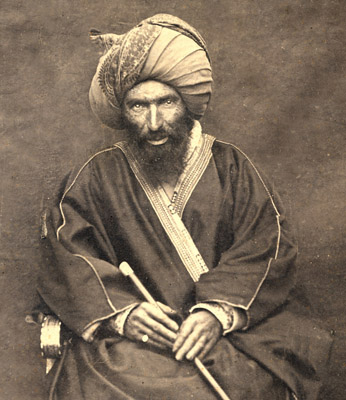
Ḥajji Mīrzā Muhammad Karīm Khān Kirmānī
(1225-1288 AH /1810- 1871 CE)
- Biographical Notes
- Sources for the Biography of Muhammad Karīm Khān Kirmānī
- Ḥajji Mīrzā Muhammad Karīm Khān Kirmānī I
- Ḥajji Mīrzā Muhammad Karīm Khān Kirmānī II
- Karim Khan Kirmanī : An Annotated, Alphabetical, Bibliographical Survey of the Writings of Karim Khan Kirmanī including select mss. printed materials, PDfs and Urls.
- An early Epistle of the Bāb to Ḥajji Mirza Muhammad Kārim Khān Kirmānī (d.1871 CE) as cited in Kirman's own Risāla al-Shihāb al-thāqib fī rajm al-nawāṣib ("The Piercing Thunderbolt for the Stoning of the Enemies"). Translation Stephen Lambden.
- The Anti-Babi Writings of Karīm Khān Kirmānī
![]()
The 2nd Kirmānī Shaykhī leader

Āqā Ḥajjī Muhammad Khān Kirmānī
(1263-1324/1846-1906).
The Kirmani Shaykhī leader and the son of Muhammad Karim Khān Kirmānī.
- Muhammad Khān Kirmānī : An Annotated, Alphabetical, Bibliographical Survey of the Writings of Muhammad Khān Kirmānī including select mss. printed materials, PDfs and Urls.
- Muhammad Rahim Khan Kirmani (d. 1889), elder brother of Muhammad Khan Kirmani and his supporters, the Natiqis (pl. Nawatiq).
- The 1878 Shaykhi-Balasari conflict in Kirman.
- Hajji Mirza Muhammad Baqir son of Muhammad Ja`far son of Muhammad Sadiq [Isfahani] Hamadani (1239/1823-4, d. Jandaq, 1319/1901) and his writings.
![]()
The 3rd Kirmānī Shaykhī leader
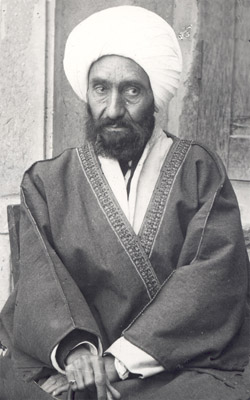
Āqā Ḥajjī Zayn al-`Ābidīn Khān al-Kirmani al-Ibrahīmi (1276-1360/1859-1941), brother of 2nd Kirmānī Shaykhī leader.
Biography
- Zayn al-`Ābidīn Khān al-Kirmani al-Ibrahīmi : An Annotated, Alphabetical, Bibliographical Survey of the Writings of Zayn al-`Ābidīn Khān al-Ibrahīmi including select mss. printed materials, PDfs and Urls.
![]()
The 4th Kirmānī Shaykhī leader
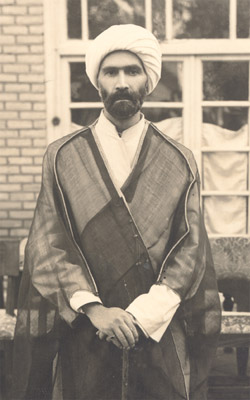
Āqā Ḥajjī `Abu'l-Qāsim b. Zayn al-`Ābidīn Khān Kirmani al-Ibrahīmī (1314-1389/1896-1969), son of the 3rd Kirmānī Shaykhī leader.
`Abu'l-Qāsim ibn Zayn al-`Ābidīn Khān al-Ibrahīmī: An Annotated, Alphabetical, Bibliographical Survey of the Writings of `Abu'l-Qāsim b. Zayn al-`Ābidīn Khān al-Ibrahīmī including select mss. printed materials, PDfs and Urls.
![]()
The 5th Kirmani Shaykhī leader
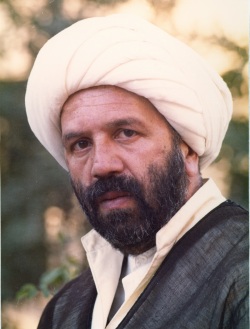
Ḥajjī Sarkar Aqa,`Abd al-Riḍā' Khān al-Ibrahīmī
(1340-1400/1921- 26th Dec. 1979)
- Bibliography `Abd al-Riḍā' Khān al-Ibrahīmī : An Annotated, Alphabetical, Bibliographical Survey of the Writings of `Abd al-Riḍā' Khān al-Ibrahīmī including select mss. printed materials, PDfs and Urls.
![]()
The 6th Kirmani-Iraqi Shaykhī leader
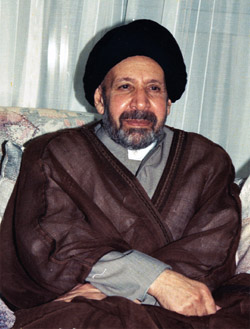
Ḥajjī `Sayyid `Ali `Abd Allah al-Mūsāwī al-Ḥifzih of Basra (1317/1899- XXX).
- Bibliography`Sayyid `Ali `Abd Allah al-Mūsāwī al-Ḥifzih : An Annotated, Alphabetical, Bibliographical Survey of the Writings of `Sayyid `Ali `Abd Allah al-Mūsāwī al-Ḥifzih including select mss. printed materials, PDfs and Urls.
![]()
OTHER SHAYKHI LEADERS AND NOTABLES OF THE 19th-21st CENTURIES
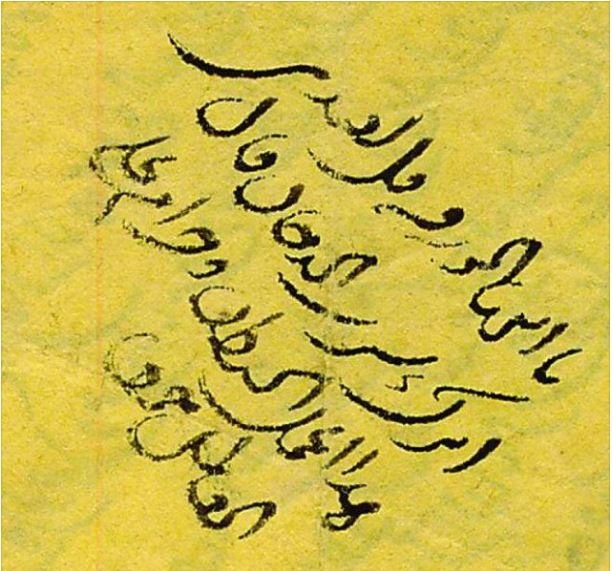
Handwriting of Fatima Baraghani, Tahira ( d.1852).
- A Baraghānī - Qazvini Shi`i Shaykhi family and their writings.
- The Adhirbayjani, Mamaqani Shaykhi leaders and their literary legacy. 2015
- A letter of the Bab to Mullā Ḥasan Gawhar (d.1266/1849) or Shaykh Ḥasan ibn `Alī [of Qarāja Dāghī] al-Tabrīzi.
- Prominent Adhirbayjani Shaykhis/ Usulis of the Thiqat al-Islam family.
- From Adhirbayjan to Kuwait: The al-Ḥāʼirī al-Iḥqāqī legacy.
![]()
STUDIES ON SHAYKHI DOCTRINAL PERSPECTIVES
- Towards a Bibliography of Anti-Shaykhi polemic in Twelver Shi`i and Sunni religious literatures.
- On the possible Hebrew-Judaic roots of the Ishraqi, Shi`i-Shaykhī term Hurqalya [sic.] and a survey of its Imami interpretations.
- On the Etymology of Hurqalya [sic.] / Havaqalya [sic.].
- The Early Shaykhī interpretation of the Isra'-Mi`raj (Night Ascent and Ascension) and Babi-Baha'ī Responses thereto.
- Some Notes on the Shaykhī Cosmology and Psychology of Soul-Spirit-Mind and Intellect.
![]()
Some Cosmological Aspects of Shi`i-Shaykhi and Babi-Baha'i Gnosis.
Stephen Lambden, UC Merced. In Progress 2025-6. In Progress and Correction 2025-6.
The various "Worlds", "Universes or Supra-Terrestrial Realms according to Qur'amic and Post-Quranic Abrahamic- Islamic cosmology.
Based on various writings of Ibn al-`Arabi (638/1240)
- (1) `alam al-amr "The world of the Command" : (Rasa'il Ibn `Arabi. Beirut: Dar Sadir, 1997, Istilihat, p. 539)
- (2) `alam al-khalq "The world of the creation" : (Rasa'il Ibn `Arabi. Beirut: Dar Sadir, Istilihat, p. 539)
Worth noting here is the use of al-amr in connection with the definition of al-Kursi, the celestial "Pedestal" or "Footstall" of God :
al-kursi -i [ndicates] the foundation of the Divine Command (mawdi` al-amr) and of the Prohibition [Culmination] (al-nahy).
Some furthe cosmological definitions in the Istilihat al-Sufiyya of Ibn al-`Arabi:
Under the letter "M" (mim), the Great Shaykh, Ibn al-`Arabi includes several realms associated with the world of the dominion or kingdom [of God] , commencing with the word al-mulk which is defined as the `alam al-shahada, the world of the testimony. attestation etc. They follow definitions of al-barzakh and al-jabarut (see below):
- al-Malakut [indicates] the World of the Unseen (`alam al-ghayb) - cf. Q.
- al-Malik al-Mulk [indicates that] "He is the Real One (huwa al-haqq) in the state expressing the metaphorical conditions (mujazat) of the servant (al-`abd) according to the nature of His Command (al-amr) relative to him. (Rasa'il, p.540).
- al-Mulk = "The Dominion",, "The Kingdom of God" indicates the world-Universe which is Shahada
- Mulk and Malakut
The world of the Kingdom or Kingdom of God = `ālam al-mulk wa'l-malakūt
- Nasut
- Jabarut
Jabarut :In the opinion of [`Ali ibn] `Abi Talib (d.40/661) it signifies the world of the Divine Grandeur (`alam al-`azimat) and in the opinon of many others it is indicative of the world of the Intermediate [the intermediate world] (`alam al-wast)
- Lahut, the Divine World
- Hahut the World of the Divine Ipseity, a transcendent realm which is the abode of the Deity or Godhead cf. huwiyya = "He-ness"; the linking of H and W in Arabic.
On Barzakh and Hūrqalyā (Arabic = هورقليا = h-w-r-q-l-y-a
The term Barzakh and its Islamic and Babi-Baha'i Interpretations
Barzakh in the Qur'an
- Barzakh in the Qur'an (1)
- Barzakh in the Qur'an (2)
- Barzakh in the Qur'an (3)
- Barzakh in the Rasa'il Ikhwan al-safa' (XX the cent CE).
- Barzakh in the writings of al-Ghazzali (d. 505/1111).
- Barzakh in the writings of Shihab al-Din Yahya Suhrawardi (d. / ).
- Barzakh in the writings of Muhyi al-Din ibn al-`Arabi (d. 638 /1240).
- al-Futuhat al-Makkiyya sect. 63 (as above) "On the Gnosis of the Eternity of the People (fi'l-ma`rifat baqa' al-nas) in the Barzakh between the mortal world and [that of the Awakening on the Day of] Resurrection (bayn al-dunya wa'l-ba`th)." Towards a Tentative Translation of section 63 by Stephen Lambden
- Some further Barzakh references in the al-Futuhat al-Makkiyya of Ibn al-`Arabi (d.638/1240).
. إصطلاحة الصوفية
Ibn al-`Arabi in his al-Istilahat al-sufiyya ("Sufi Lexicon") under the letter ` (`ayn) refers to two realms or "worlds" (`alam) commencing with the word "world" (first letter `) along with succinct definitions of these two realms, They are as printed within Rasa'il ibn al-`Arabi. ed. Muhammad Shihab al-Din `Arabi, Beirut: Dar Sadir, 1997. See Rasa'il Ibn `Arabi. Beirut: Dar Sadir, Istilahat al-sufiyya, pp. 529-541). Other printings:
- Kitāb Iṣṭilaḥāt al-Ṣūfiyya (“The Book of the Technical Terms of the Sufis”). Kamāl al-Dīn 'Abd al-Razzāq al- Kāshānī; ed. Aloys Sprenger. Calcutta, 1845. 167, IX pp.
- Iṣṭilaḥāt al-Ṣūfiyya, ed. A. Sprenger, rep. in A Glossary of Sufi Technical Terms. London: The Octagon Press, 1991.
- Iṣṭilaḥāt = [Kitāb] Iṣṭilaḥāt al-Ṣūfiyya. Muwaffaq Fawzī al-Jabr. Damascus: al-Ḥikmah, 1415/1995 and Beirut: Dar al-Kutub al-`Ilmiyya, 2005.
- The succinct definition of al-Barzakh in the Istilahat al-Sufiyya (The Sufi Lexicon") attributed to Ibn al-`Arabi (d. 638/1240).
`Abd al-Razzaq al-Kashani (d. c. 730/XXXX) and the Istilahat al-Sufiyya attributed to him.
- The succinct definition of al-Barzakh in the Istilahat al-Sufiyya attributed to `Abd al-Razzaq al-Kashani (d. c. 730/XXXX). ed. Muwaffaq Fawdi al-Jabr. [Beirut] Dar Sadir, 1416/1990. Bab al-ba', page 19,
[39] al-Barzakh. It is a "Partition" (ha'il) between two things (al-shi'iayn) and there are interfaces within it, something of the "World of Similitudes" (`alam al-mithal) ( a`ny; most obedient, humbly submissive), an "Obstacle" [Screening] (al-hajiz) between Things Densely Corporeal (al-ajsad al-kathifa) and the Magnificent "World of the Spirits" (`alam al-arwah al-majda).
[40] al-Barzakh al-Jami`, "The Universal / Comprehensive Barzakh". This is the [Divine] Presence expressing Oneness (al-hadrat al-wahidiyya) and the Primordial Entification (al-ta`yin al-awwal) which is the foundation of the Barzakh (asl al-barzakh) in its entireity kulli-ha). Wherefore then is it named the Primal Barzakh, the Most Great (al-a`zam) and the Greatest (al-akbar)!
Hūrqalyā (Arabic) = هورقليا = h-w-r-q-l-y-a
For such as might wonder, Hūrqalyā (Arabic هورقليا = h-w-r-q-l-y-a [sic.], pointing uncertain) is a seven letter Arabic transliterated loanword probably originating in an Islamic context with Shihāb al-Dīn Yaḥyā Suhrawardī (d. [executed] Aleppo 587/1191) who is viewed as the founder of the Ishrāqī or Illuminationist school of Islamic philosophy. I have a lengthy paper in press (due 2024 after a fifteen year blockage!) which argues that etymologically and conceptually this word (to simplify) derives (probably as orally transmitted with a supplementary adjective) from a Hebrew (הָרָקִיעַ, hā-rāqîa`), Aramaic-Syriac or Mandaic form of רָקִיעַ rāqîa`, a word which is often indicative of a luminous, firmament or interworld spanning or linking "heaven" and "earth".
The term Barzakh and its Babi-Baha'i Interpretations
The term Barzakh and its Islamic and Babi-Baha'i Interpretations
Barzakh in the Writings of the Bab,
The word Barzakh occurs four times in the Persian Bayan:
-
Persian Bayan II:7 (p.31ff) - فی بيان يوم القيمة On the Exposition of the Day of Resurrection (yawm al-qiyama) - twice though not in the II:7 of the Arabic Bayan :
Page 32
و ان هذا ما وعدنا اللّه من مظهر نفسه اطاعت او كرديد ثمرهء بيان نزد خداوند ترحّم بر خود كرده اگر نصرت نمی كنيد مظهر ربوبيت را را ظاهر كرده ايد و الا لايق ذكر نيستيد لن ندعو معه شيئا و بانچه بر او هستيدمحزون نكرده كه ظاهر ميشود بمثل آنكه من ظاهر شدم و عود می فرمايد
خلق بيان را و حال آنكه در قلوب شما خطور نكرده دون ايمان خودتان سرعت كنيد در اجابت خدا و تصديق بايات او كه او است اجابت من يظهره
- Persian Bayan II:8 (p.34ff) twice- and again not in the parallel section of the Arabic Bayan:
Such is indicative in the Book of God (Kitab Allah) of the fruit of knowledge (thamarat-i `ilm) without action (bila `amal), And if death (mawt)
اينست ثمره علم بلا عمل در كتاب اللّه و اگرموت را فهميده از اقرار خود تخلف نمی ورزيده باينكه اقرار كند كه او حق است و از شئون محقق حق محتجب شود و اين موتی است كه در يوم قيامت نفع می بخشد كل را بعد از آن در برزخ الی ان يطلع اللّه شمس الحقيقة و انما المراد بالبرزخ بين الظهورين لا ما هو المعروف بين الناس بعد موت اجساد هم فاّن هذا دون ما يكلف به الناس لان بعد موتهم لا يعلم ما يقضی عليهم الا اللّه و ان ما هم به يؤمرون لابد ان يعلمون و هر گاه كسی در بحر موت سير نمايد عجائب ما لا نهاية بما لا نهايه ملاحظه می نمايد مثلا اگر در زمان رسول خدا كسی ميت شده بود ميديد كل شئونی كه بمن لم يومن بمحمّد ص راجع ميشود از عالم تجرد گرفته تا عالم تحدّد نفی محض و نار بحت است
REPETITION X2
و اگر موت را فهميده از اقرار خود تخلف نمی ورزيده باينكه اقرار كند كه او حق است و از شئون محقق حق محتجب شود و اين موتی است كه در يوم قيامت نفع می بخشد كل را بعد از آن در برزخ الی ان يطلع اللّه شمس الحقيقة و انما المراد بالبرزخ بين الظهورين لا ما هو المعروف بين الناس بعد موت اجساد هم فاّن هذا دون ما يكلف به الناس لان بعد موتهم لا يعلم ما يقضی عليهم الا اللّه و ان ما هم به يؤمرون لابد ان يعلمون و هر گاه كسی در بحر موت سير نمايد عجائب ما لا نهاية بما لا نهايه ملاحظه می نمايد مثلا اگر در زمان رسول خدا كسی ميت شده بود ميديد كل شئونی كه بمن لم يومن بمحمّد ص راجع ميشود از عالم تجرد گرفته تا عالم تحدّد نفی محض و نار بحت است و كل شئونی كه بمن يؤمن بمحمّد راجع ميشود از عالم تجرد الی منتهی التحدّد از شئون شجره اثبات و جنّت نبوت بوده و اوّل ميت نبوده و ثانی ميّت بوده و اوّل چون كه ميّت نشده فانی شده در نفی و ثانی چونكه ميّت شده باقی مانده در اثبات چه امروز ظاهر است ثمره ميّت شدن مؤمنين كه
اينست ثمره علم بلا عمل در كتاب اللّه و اگر موت را فهميده از اقرار خود تخلف نمی ورزيده باينكه اقرار كند كه او حق است و از شئون محقق حق محتجب شود و اين موتی است كه در يوم قيامت نفع می بخشد كل را بعد از آن در برزخ الی ان يطلع اللّه شمس الحقيقة و انما
المراد بالبرزخ بين الظهورين لا ما هو المعروف بين الناس بعد موت اجساد هم فاّن هذا دون ما يكلف به الناس لان بعد موتهم لا يعلم ما يقضی عليهم الا اللّه و ان ما هم به يؤمرون لابد ان يعلمون و هر گاه كسی در بحر موت سير نمايد عجائب ما لا نهاية بما لا نهايه ملاحظه می نمايد مثلا اگر در زمان رسول خدا كسی ميت شده بود ميديد كل شئونی كه بمن لم يومن بمحمّد ص راجع
... The term Barzakh indicates [the time period] between two [successive] Theophanies [Manifestations] (bayn al-zuhurayn) ...
Barzakh in Select further Writings of the Bab
Barzakh in the Writings of `Abdu'l-Baha'
Barzakh in the Writings of Baha'u'llah
Back to top of page
SHAYKHISM AND THE BABI AND BAHA'I RELIGIONS
- Shaykhī related materials in select early writings of the Bab.
- The Ziyarat-Nama (Visitation Supplication) of the Bab for Shaykh Aḥmad ibn Zayn al-Dīn al-Aḥsā’ī (d. 1241/1826).
- The Commentary of the Bāb on [a portion of] Sayyid Kāẓim Rashti's Sharḥ al-khuṭba al-ṭutunjiyya (The Commentary on the Sermon of the Gulf).
- An Early Epistle of the Bāb to Karim Khān Kirmānī
- The Baraghāni family, Early Shaykhism and the emergent Bābi Religion.
- Ṭāhira, Qurrat al-`Ayn (d. 1852), Shaykhī sage, poetess and Bābī Martyr.
- Mulla Jawād Viliyānī, The Babi then anti-Bābi cousin of Fātima Baraghānī, Ṭāhira.
- The Risāla of Qatil ibn al-Karbalā'ī translated from Fadil-i Mazandarāni, Kitāb-i Zuhur al-Haqq III
- The Babi-Baha'i exaltation of Shaykh Ahmad al-Ahsa'i and Sayyid Kāẓim Rashtī
- The Lawh-i qina' ("Tablet of the Veil") of Mirza Husayn `Ali, Bahā'-Allāh, An Introduction, Translation and Commentary. See Lawḥ-i qinā' (The Tablet of the Veil). c. 1871?.
- An annotated Bibliography of Shaykhi anti-Bābi-Bahā'i polemic.
-
![]()



